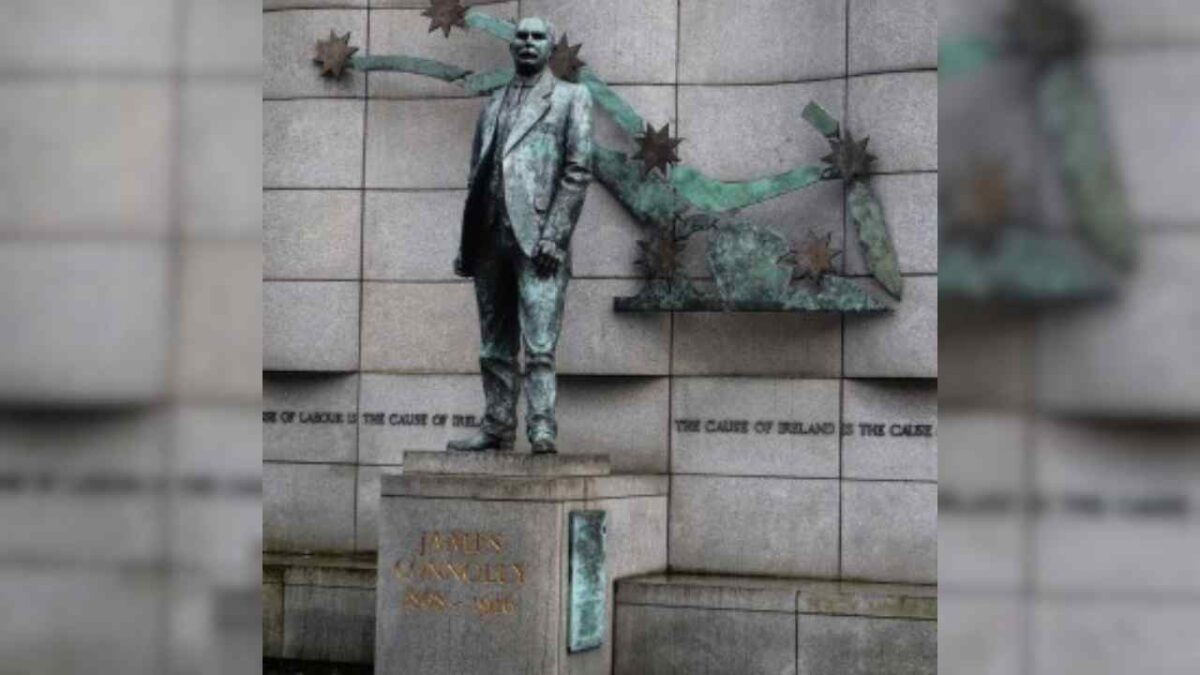Although the creation of the Irish Free State in the south was an inspiration for anti-colonial movements around the world, partition itself was a disaster for Irish workers. The new Free State became a conservative country in which the Catholic Church held immense power and discouraged labour militancy, branding it “communism”. Northern Ireland became a sectarian entity in which Catholic Nationalists were denied civil rights and excluded from employment and housing based on their identity. Working class unity was almost impossible due to carefully fostered sectarian divisions. This stagnation of workers rights lasted for almost 80 years. Moreover, the unresolved national question led to a bitter 30-year armed conflict that only ended in 1998 with the signing of the Good Friday Agreement.
In recent decades, positive changes have come to both North and South. In the Republic of Ireland, the conservative power of the Catholic Church has been broken, and young people want progressive change.
For the first time, the North has a First Minister from the nationalist community, Michelle O’Neill of Sinn Féin. This represents a political sea change as the state was designed to keep the nationalist minority out of power. Reactionary political unionism that favours the link with Britain is now in a minority position. In addition, the Brexit vote in 2016 that caused the UK to leave the European Community threatens the Good Friday Agreement and has put the issue of Irish unity back on the political agenda.
Sinn Féin, which is now the largest political party on the island of Ireland, is calling for popular assemblies to discuss what a progressive united Ireland can look like. It is crucial for the trade union movement to be involved in this growing debate. Irish unity is not simply a matter of putting North and South together but rather of making a new inclusive Ireland. To this end, Irish trade unionists have formed a group called Trade Unionists for a New and United Ireland (TUNUI) * to involve workers in the discussion and put forward progressive ideas.
In a recent interview, Katie Morgan, the youngest woman to be elected vice-president of the Irish Congress of Trade Unions (ICTU), explains the importance and relevance of Irish unity for Irish workers.

- How did you get involved in the trade union movement?
I come from a family of community activists in Belfast, and I was very active in my student union when I was in college, I knew that I wanted to continue advocating for others and I searched for a trade union job and became a union official at the age of 23 in Australia. I’ve been a trade unionist since then and have been working in Ireland as a union official since 2018.
- Why is the national question (Irish unity) important for workers and the trade union movement?
In 1916, trade unionist James Connolly fought and died for Irish independence. His goal was for a 32-county socialist republic, something that was unfortunately not achieved. There is still a border across Ireland, separating the 6 counties in the north from the 26 in the south. This has created decades of inequality for people in the north. This has been further complicated by Brexit and the fact that EU regulations no longer apply to workers in the six counties. It appears that the gap will widen for workers; not just in relation to pay but also to working conditions.
- What would a united Ireland that benefits workers look like?
Reunification will take a lot of work to be done properly, but it can be achieved. The progressive aspirations for a united Ireland are to strengthen workers’ rights across the country; build an all-Ireland national health service, enact a bill of rights to safeguard all citizens across the country, establish constitutional rights to housing, put in place a fair taxation system, and develop an all-Ireland response to climate change. Achieving these goals will require strong trade unions organising, educating, and empowering workers. We have a unique opportunity to make this happen. Ni neart go cur le Chéile! (There is no strength without unity.)
In this historic moment, Irish workers have a rare chance to imagine and build a new society in which workers’ rights and progressive values are at the heart of a new united Ireland.



